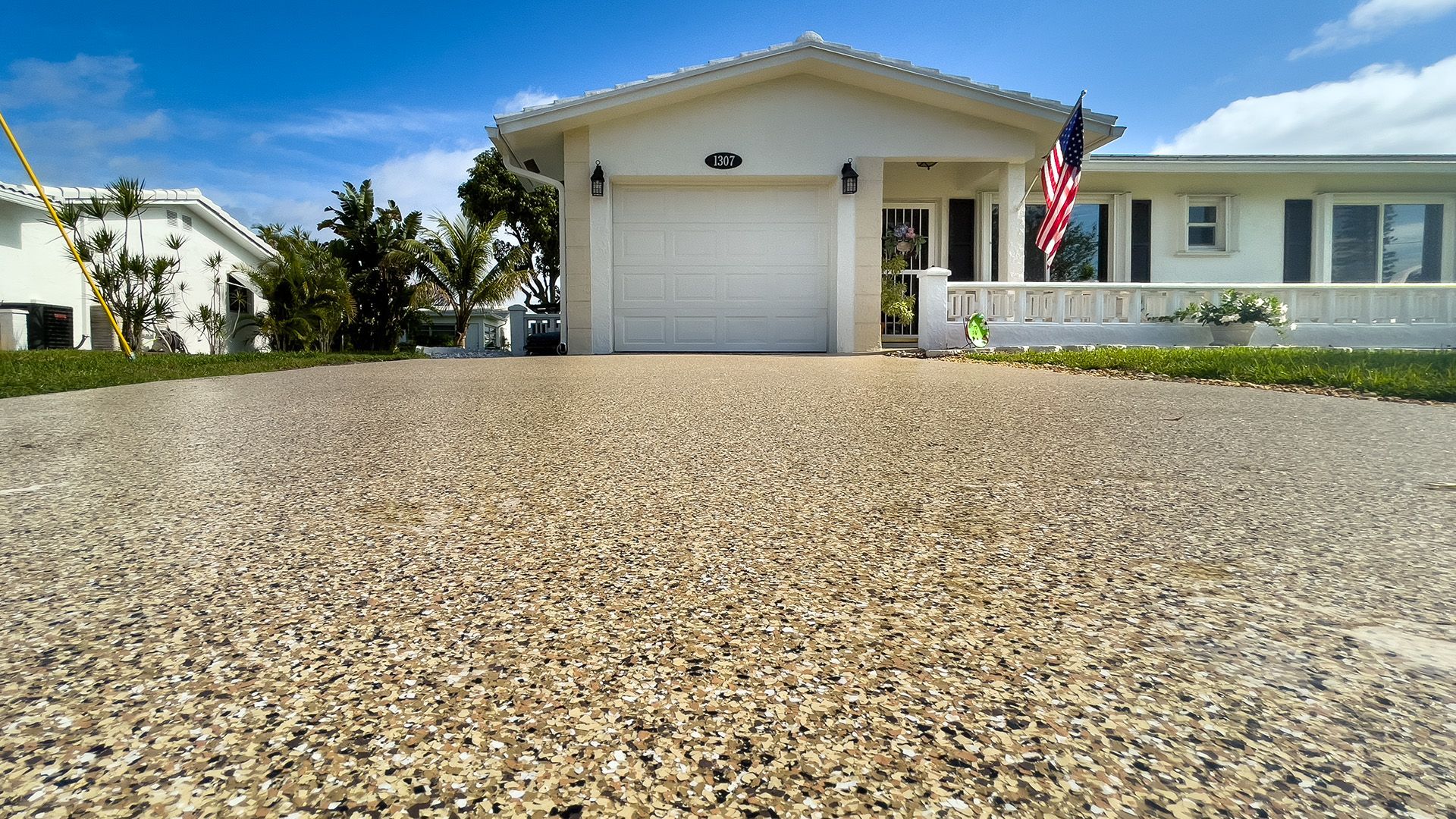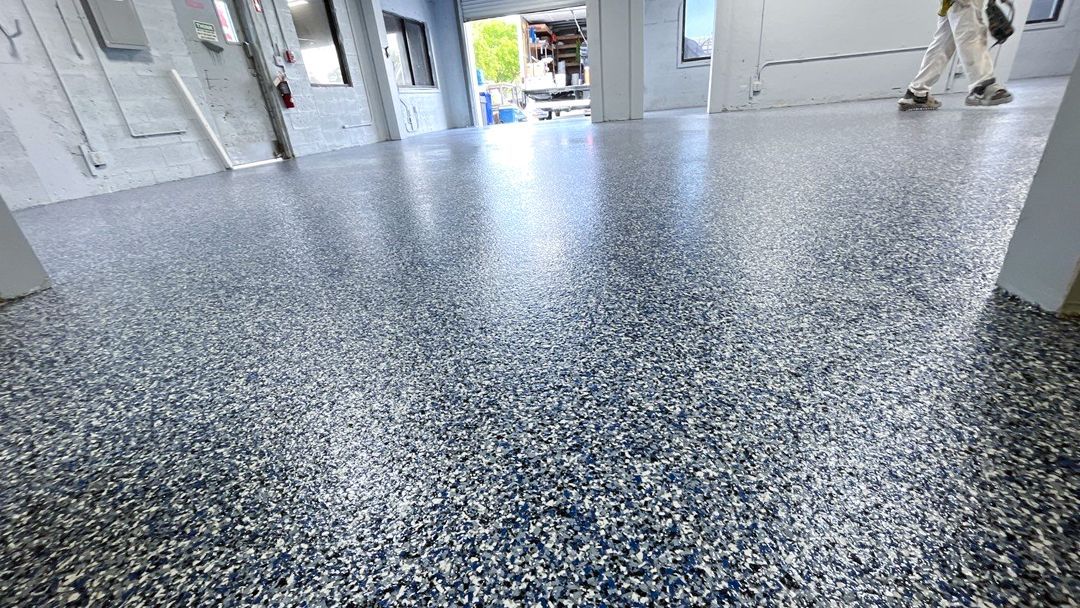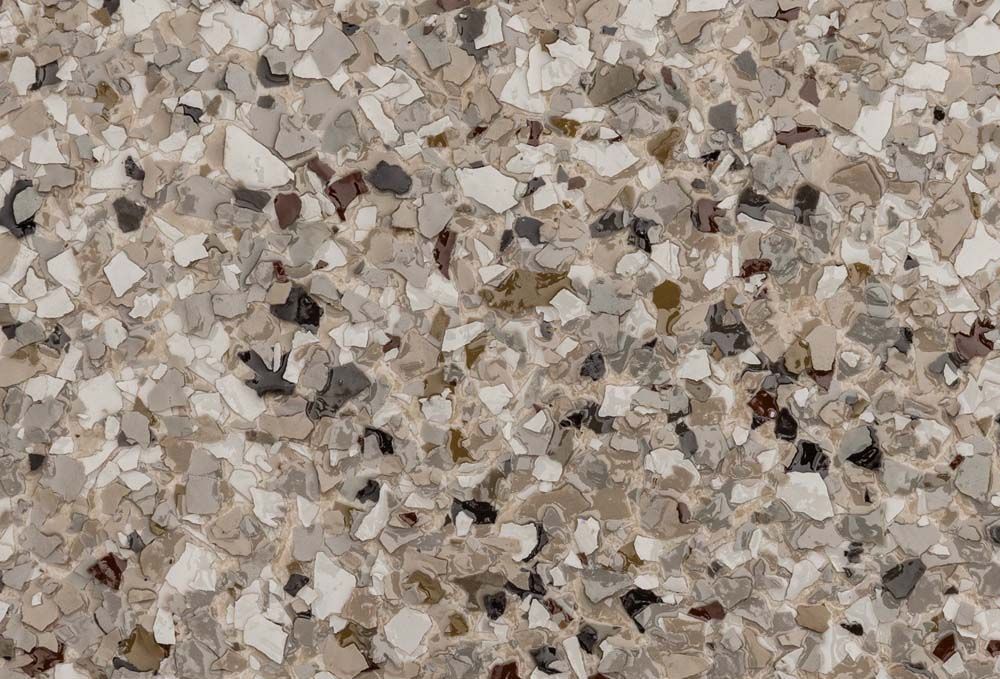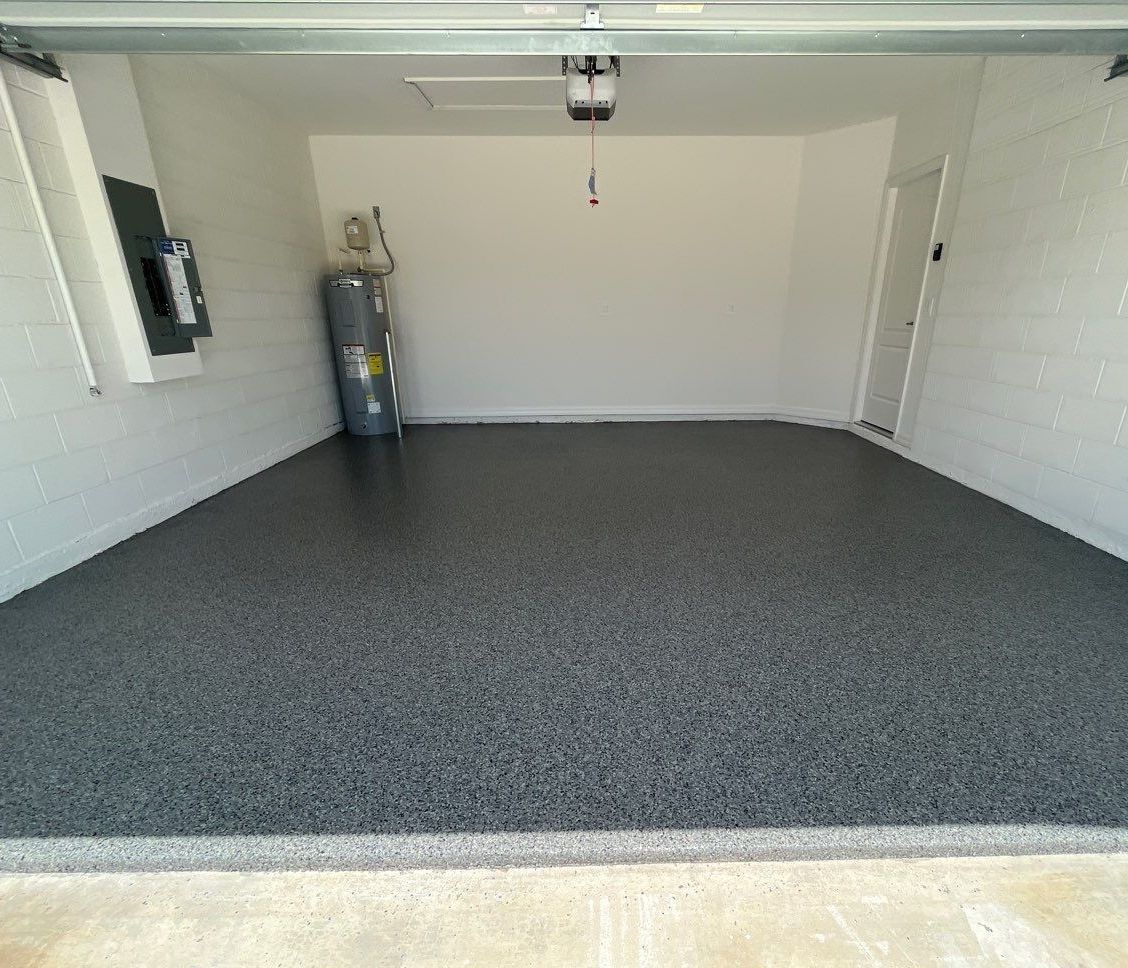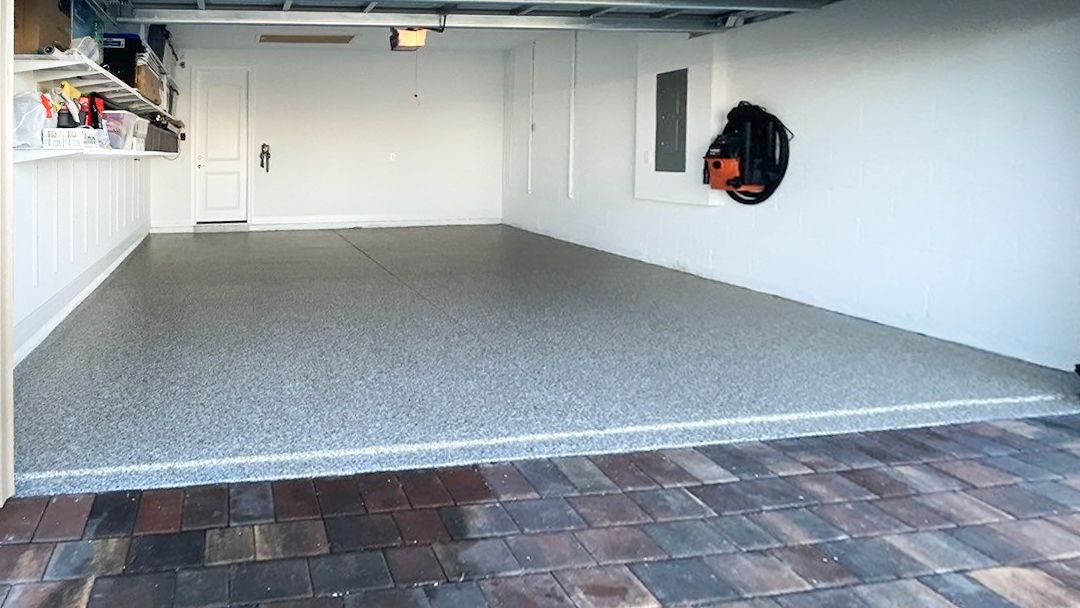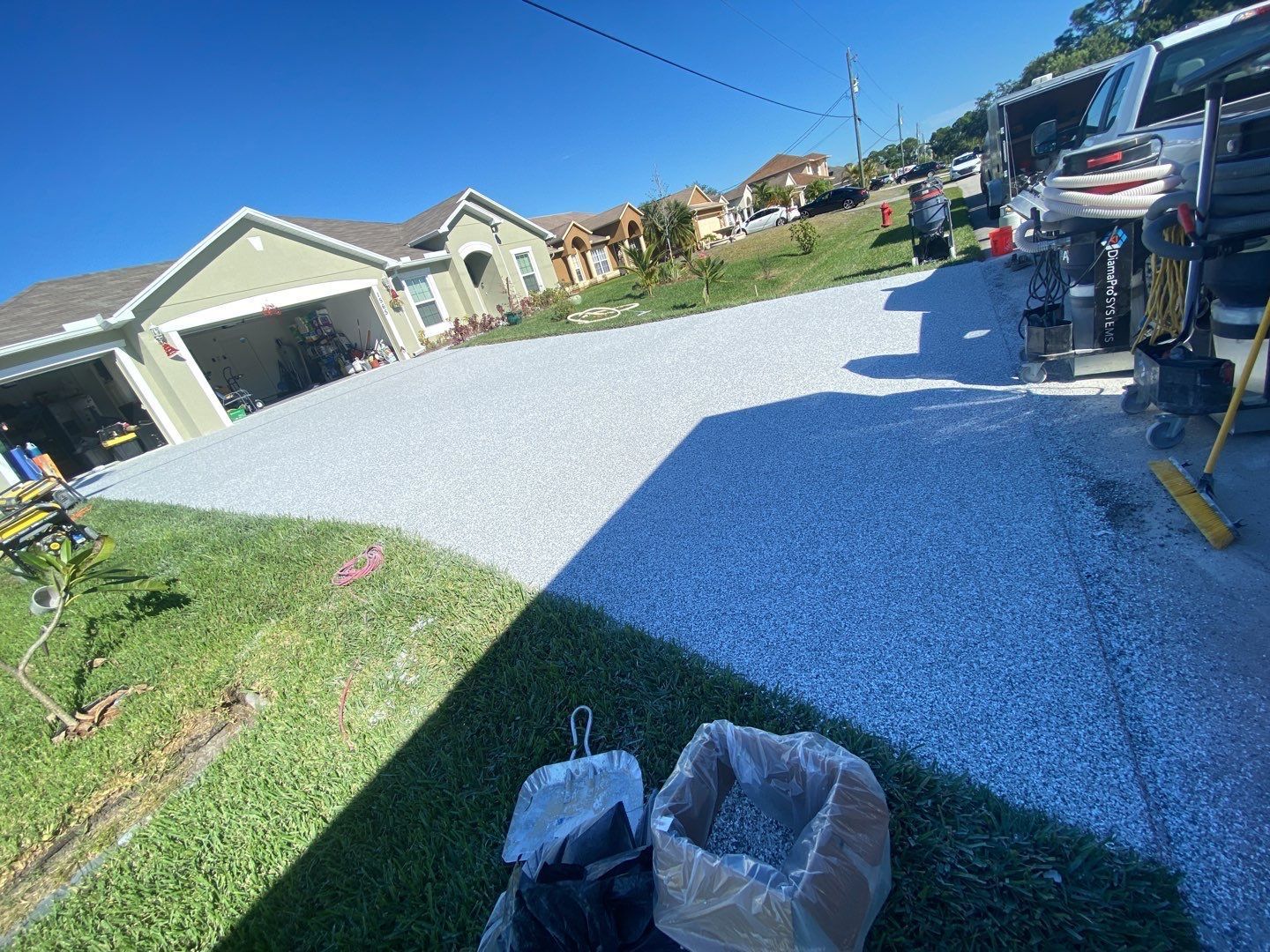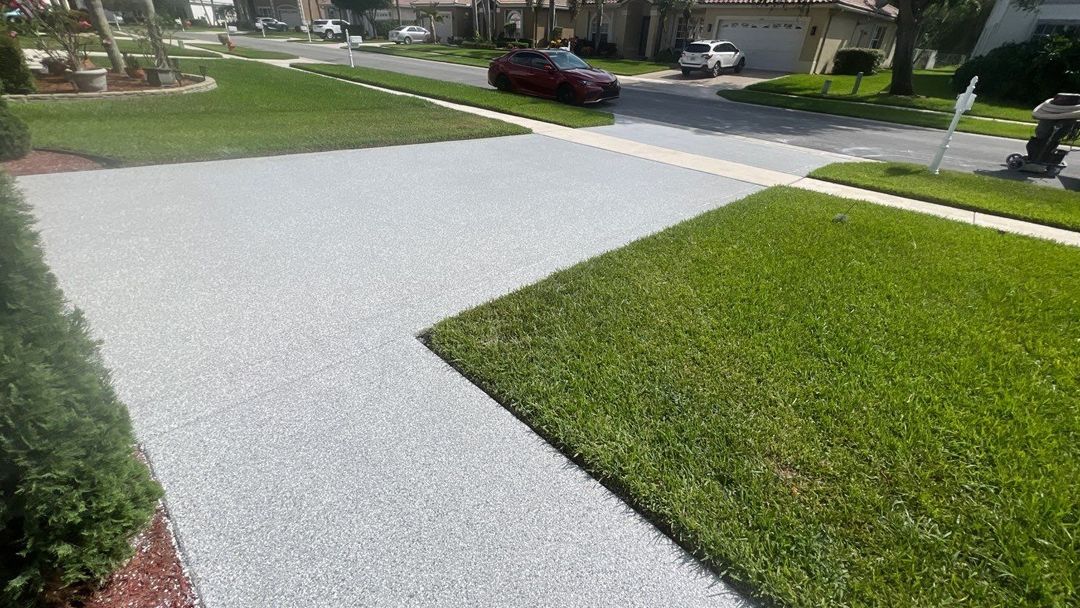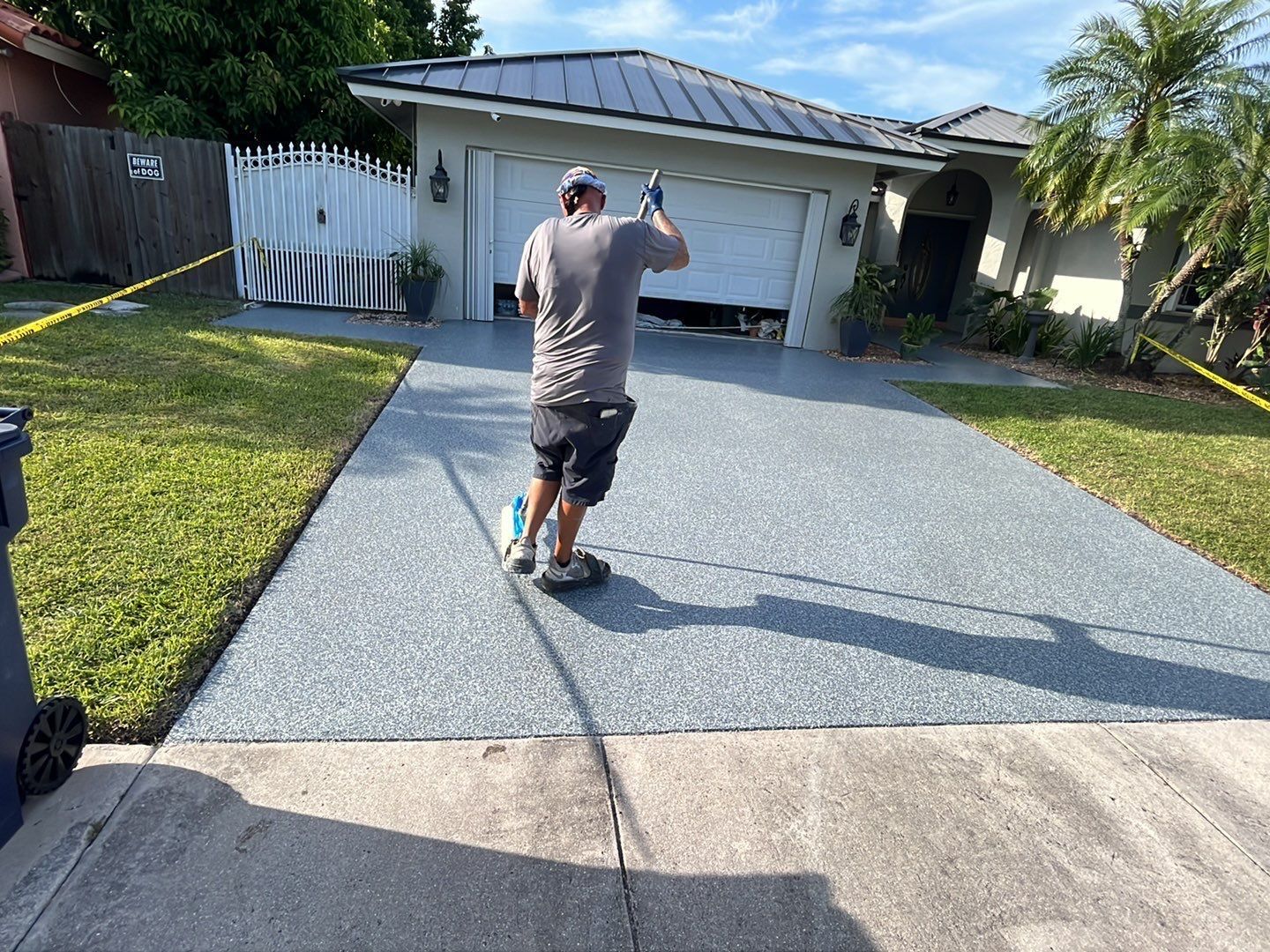Can epoxy be applied on any type of flooring material?
Epoxy coatings can be applied to various types of flooring materials, but proper surface preparation is crucial to ensure adhesion and performance. Epoxy is commonly used on concrete floors due to its excellent bonding properties and durability. However, it can also be applied to other materials with the appropriate preparation.
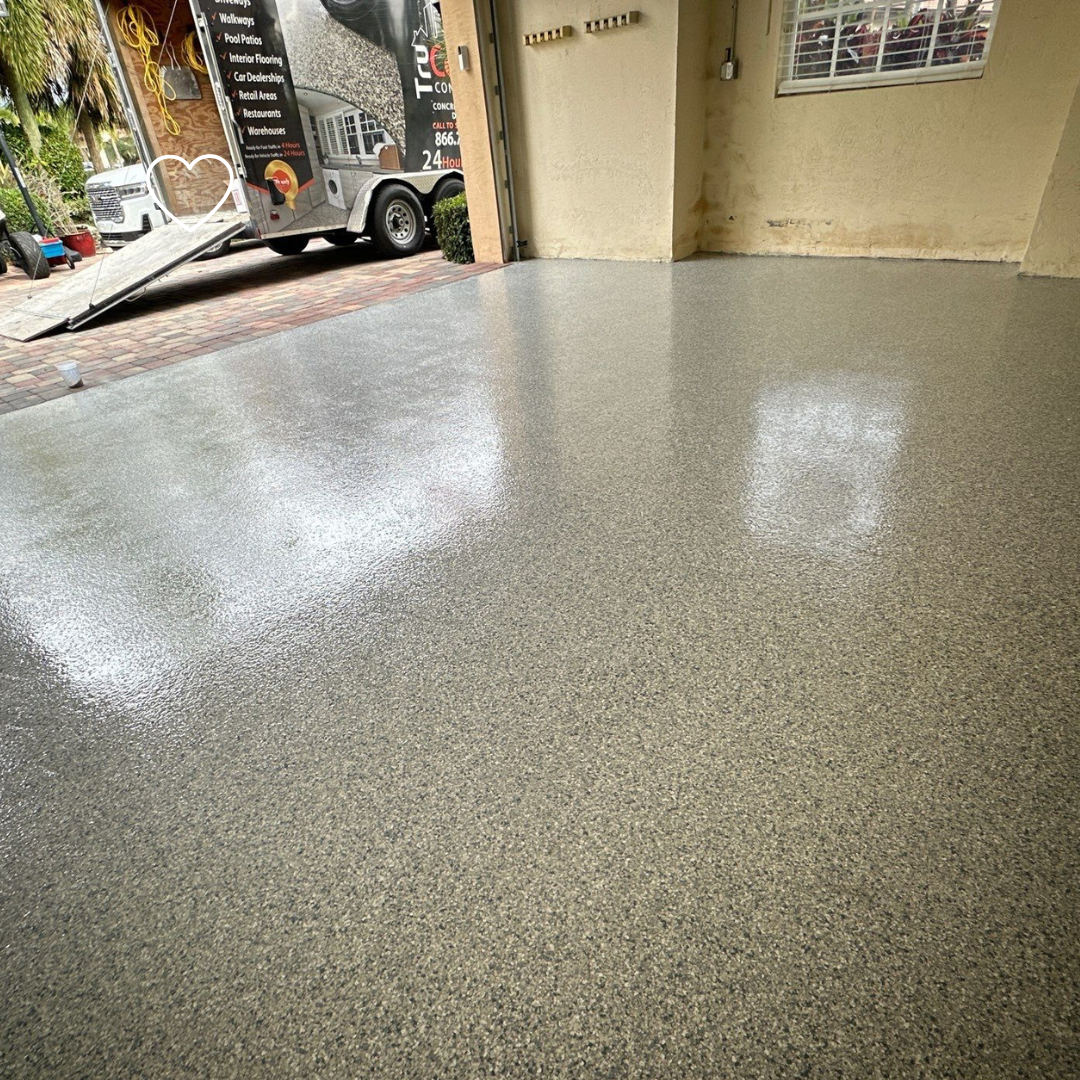
Concrete: Epoxy is most commonly applied to concrete floors in commercial, industrial, and residential settings. Proper surface preparation, including cleaning, etching, and patching, is essential to remove contaminants and create a rough texture for better adhesion.
Wood: Epoxy can be applied to wood flooring, but it requires specific techniques to ensure adhesion and prevent issues such as warping or cracking. Wood floors must be properly sanded, cleaned, and sealed before applying epoxy to ensure a strong bond.
Metal: Epoxy coatings can also be used on metal surfaces, such as steel or aluminum floors. Surface preparation is critical to remove rust, oil, and other contaminants that can interfere with adhesion. Primers may be necessary to enhance bonding on metal substrates.
Tile: While epoxy can be applied to tile floors, it may not adhere well to glazed or non-porous surfaces. Grout lines and textured tiles provide better adhesion for epoxy coatings. Proper cleaning and etching of the tile surface are essential to promote adhesion.
Vinyl: Epoxy can be applied to vinyl composite tile (VCT) floors, but surface preparation is crucial to ensure adhesion. The surface must be thoroughly cleaned and lightly abraded to promote bonding.
Summary:
While epoxy coatings can be applied to various types of flooring materials, proper surface preparation is essential for successful adhesion and performance. Concrete is the most common substrate for epoxy flooring, but with the right preparation, epoxy can also be applied to wood, metal, tile, and vinyl floors. Consulting with a professional installer is recommended to determine the suitability of epoxy for specific flooring materials and ensure proper application techniques are followed.
